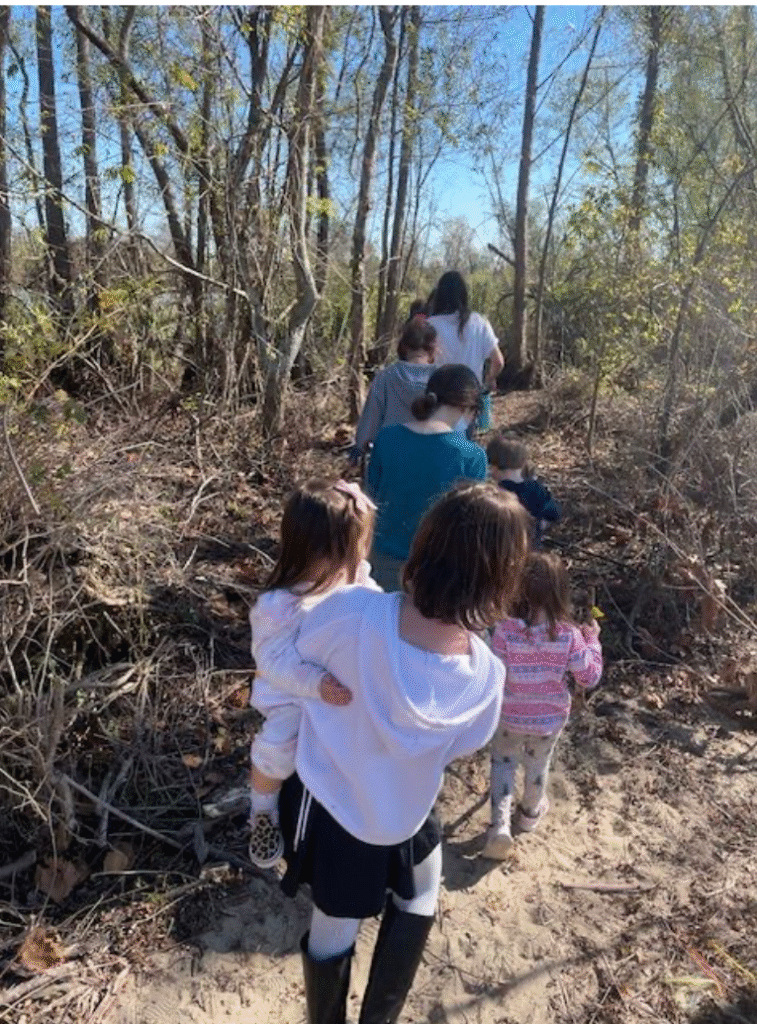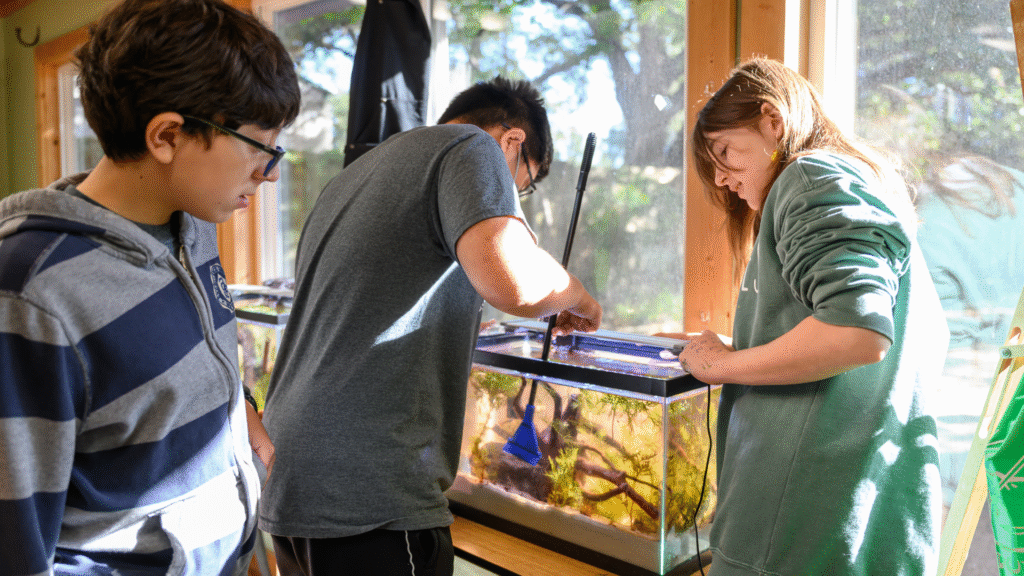A common sentiment among adolescent Montessori teachers is, “How can I do it all?” There is a desire to not only provide rigorous academics, but also to offer experiences that help students explore fundamental questions: Who am I? Where do I belong? What is my place in the world? Meeting these developmental needs can feel like a tall order, especially during a period of rapid growth and transformation that defines the third plane of development.
Fortunately, there are key aspects of a Montessori adolescent environment–global citizenship, social responsibility, and identity– that do not have to be “another thing to do”. When teachers thoughtfully prepare their environment and intentionally model these values, they can be woven into the fabric of daily classroom life, creating a culture that nurtures the whole adolescent.
Global Citizenship
Global citizenship begins in Montessori schools with our youngest learners. After years of map making, learning about culture and geography, the third plane student is ready to examine history, civics, and contemporary global challenges with a critical eye. Adolescents benefit from guidance in asking the right questions and exploring frameworks that cultivate curiosity, empathy, and respect. As anthropologist Wade Davis reminds us: “The world in which you were born is just one model of reality. Other cultures are not failed attempts at being you. They are unique manifestations of the human spirit.” Teachers can foster global thinking by modeling respect, facilitating dialogue, and helping students trace patterns of interconnection, cause, and effect.
Social Responsibility
Social responsibility naturally grows from awareness. As an adolescent program becomes more established, opportunities for outdoor education, developing a micro economy, regular service learning, and internships are all components that will help meet development needs. These components take time to establish sustainably, but social responsibility can also be taught in ordinary moments. This can look like:
- Looking to the immediate needs of the community. On-going service projects with a local organization are excellent. But what does your community do when a student experiences a loss in their family? Or when there is an overgrown garden bed in your own schoolyard? An orientation toward generosity of spirit can begin at any time.
- Stewarding of classroom materials with care. Do you repair broken items, or simply throw them away? Can you add a piece to your project rubrics to encourage using recycled or found materials with creativity?
Identity
At the heart of the third plane is identity development. Adolescents are asking, Who am I? What do I value? Where do I belong? Montessori classrooms provide the structure and freedom to explore these questions safely. A diverse humanities curriculum offers a springboard for these conversations. Teachers can ensure that literature and poetry represent a broad spectrum of racial, cultural, and gender perspectives, encouraging students to ask: Whose voices are represented? Whose are missing? How can we recover them? This practice nurtures empathy and perspective-taking while supporting students’ search for self-understanding.

Most importantly, students are always watching the adults in their community. When a teacher embodies not just tolerance but deep acceptance and respect for every student, the classroom becomes a microcosm of society where students can observe radical belonging by acknowledging a struggling student’s gifts, looking for contributions rather than deficits, modeling active listening, and reflecting on how their worldview shapes interactions. Even amid political unrest, violence, and rapid technological change, meaningful growth often begins locally, with Montessori classrooms providing space to practice global citizenship, peacemaking, and interconnection, preparing adolescents to engage meaningfully with the wider world.


